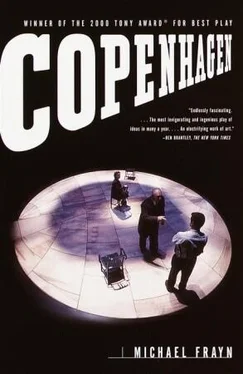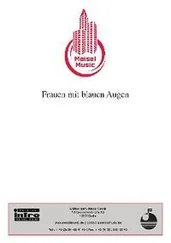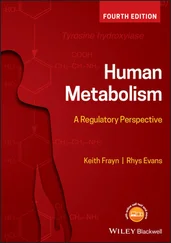‘I was absolutely convinced,’ says Heisenberg, in the conversation that followed, ‘of the possibility of our making an uranium engine [reactor] but I never thought that we would make a bomb and at the bottom of my heart I was really glad that it was to be an engine and not a bomb. I must admit that.’ Weizsäcker says that he doesn’t think that they should make excuses now for failing, ‘but we must admit that we didn’t want to succeed.’ Gerlach: ‘One cannot say in front of an Englishman that we didn’t try hard enough. They were our enemies, although we sabotaged the war. There are some things that one knows and one can discuss together but that one cannot discuss in the presence of Englishmen.’
In a letter written fourteen years later von Laue complained that, during their conversations at table in the following weeks, ‘the version was developed that the German atomic physicists really had not wanted the atomic bomb, either because it was impossible to achieve it during the expected duration of the war or because they simply did not want to have it at all.’ Von Laue’s account of the elaboration of this sanitised ‘version’ ( Lesart in German) has been seized upon by unsympathetic commentators, and contrasted with the encouraging prospects for atomic weapons that some of the physicists had undoubtedly held out to the Nazi authorities at various times during the earlier part of the war.
Well, we all reorganise our recollections, consciously or unconsciously, as time goes by, to fit our changed perceptions of a situation, and no doubt Heisenberg and his fellow-detainees did the same. But Bernstein locates the origins of the Lesart in those immediate reactions to the announcement of Hiroshima on the nine o’clock news. If this is so then I can only say that the team began to get their story together with quite remarkable spontaneity, speed, presence of mind, and common purpose. If they all thought as fast as this, and co-operated as closely, it’s even more surprising that they didn’t get further with the bomb.
To me, I have to say, those immediate and unprepared reactions suggest quite strongly that the first part of Powers’s thesis, at any rate, is right, and that there had been the ‘fatal lack of zeal’ that he diagnosed. Perhaps Gerlach’s claim, unchallenged by the others, that they had actually ‘sabotaged the war’ suggests at the very least a consciousness that quite a lot of stones had been left unturned.
*
But do the transcripts support Powers’s contention that Heisenberg ‘cooked up a plausible method of estimating critical mass which gave an answer in tons, and that he well knew how to make a bomb with far less, but kept the knowledge to himself?
One preliminary point needs to be cleared out of the way first: the question whether Heisenberg understood an even more fundamental point, the difference between a reactor (which is operated by slow neutrons in natural uranium, or some other mixture of U238 and U235) and a bomb (which functions with fast neutrons in pure U235 or plutonium). Goudsmit, who plainly had access to the transcripts when he wrote his book at Alsos, seems to have thought they supported his view that Heisenberg didn’t. Before the transcripts were published Rose shared Goudsmit’s dismissive view.
But, according to the transcripts, what Heisenberg tells Hahn that same night, when Gerlach, their Nazi coordinator, has retired to sob in his room, and they are finally alone together, is that ‘I always knew it could be done with 235 with fast neutrons. That’s why 235 only [presumably = “only 235”] can be used as an explosive. One can never make an explosive with slow neutrons, not even with the heavy water machine [the German reactor], as then the neutrons only go with thermal speed, with the result that the reaction is so slow that the thing explodes sooner, before the reaction is complete.’
Bernstein (unlike Goudsmit) reads this and what follows as showing that Heisenberg did understand the difference between a reactor and a bomb, ‘but that he did not understand either one very well — certainly not the bomb.’ Rose now seems to accept that Heisenberg’s remarks do indicate that he realised the bomb would have to be fissioned with fast neutrons (though he shows that in the past Heisenberg had been toying with the idea of some kind of vast exploding reactor). 1
This same conversation between Heisenberg and Hahn, when they were alone together on that terrible night, seems to me also to resolve the question of Heisenberg’s understanding of the critical mass beyond any reasonable doubt. He takes Hahn through what he believes to be the relevant calculation and tells him that the answer is ‘about a ton.’ I can’t see any earthly reason why he should be rehearsing a fabricated calculation or a fabricated answer at this stage, in a private conversation with someone he seems to have trusted, after the German team are out of the race and in custody, and after someone else has in any case already built the bomb. If he had had the right calculation and the right answer up his sleeve all the time, now would surely have been the moment to produce them. I find it much more plausible that he was telling the simple truth when he said to Hahn just before this that ‘quite honestly I have never worked it out as I never believed one could get pure 235.’
Earlier on in the evening, it’s true, when everyone was present during the conversation immediately after the news bulletin, Hahn says to Heisenberg: ‘But tell me why you used to tell me that one needed 50 kilograms of 235 in order to do anything.’ (To which Heisenberg replies that he wouldn’t like to commit himself for the moment.) This does seem to suggest that he had made a calculation of some sort earlier, as von Ardenne claimed — though it also surely destroys once and for all the improbable proposition that Hahn had been involved in it, or had made some kind of estimate of his own. Perhaps Heisenberg had made not so much a calculation as some kind of guess or estimate. Even if was a serious calculation, it seems most unlikely that it was the right calculation, or that it was one he had adhered to.
This is made clear to me (at last) by Jeremy Bernstein. I should explain that when I first read the Farm Hall transcripts, before I wrote the play, I was using the bare uncommented text published in Britain, unaware that there was also a completely different edition published in the US, incorporating Bernstein’s detailed commentary. After the play was produced and published he was kind enough to send me it, and it illuminated a great many matters that I had not understood before. These are after all scientists talking to scientists, and they are reported verbatim with all the ellipses of spoken conversation, and with a further haze cast over the proceedings by translation. Bernstein is both a distinguished journalist and a professor of physics, and he has a long acquaintance with the history of atomic research. (He recalls being given the bare plutonium core of a bomb to hold on the Nevada test site in 1957; ‘it was slightly warm to the touch, since plutonium is marginally radioactive.’) He has a thorough understanding of the scientific issues involved, and is the ideal guide to the physics — though a slightly less percipient one, I think, to the psychology of the physicists.
I’m pleased to discover for a start that he takes the same view of Heisenberg’s admission to Hahn about never having worked out the critical mass. He believes that it has to be taken at its face value, and he asks how it can be reconciled with the figure of 50 kg recalled by Hahn. He demonstrates that when Heisenberg attempts to do the calculation for Hahn he ‘gets it wrong at every level’—he does the arithmetic wrong, and is in any case doing the wrong arithmetic. ‘Knowing how scientists work,’ says Bernstein, ‘I find it implausble that he ever did the calculation correctly before. One can imagine even a Heisenberg forgetting a number — he was, in any case, not very good with numbers — but it is very difficult to imagine his forgetting a general method of calculation, a method that once led him to a more reasonable answer.’
Читать дальше












